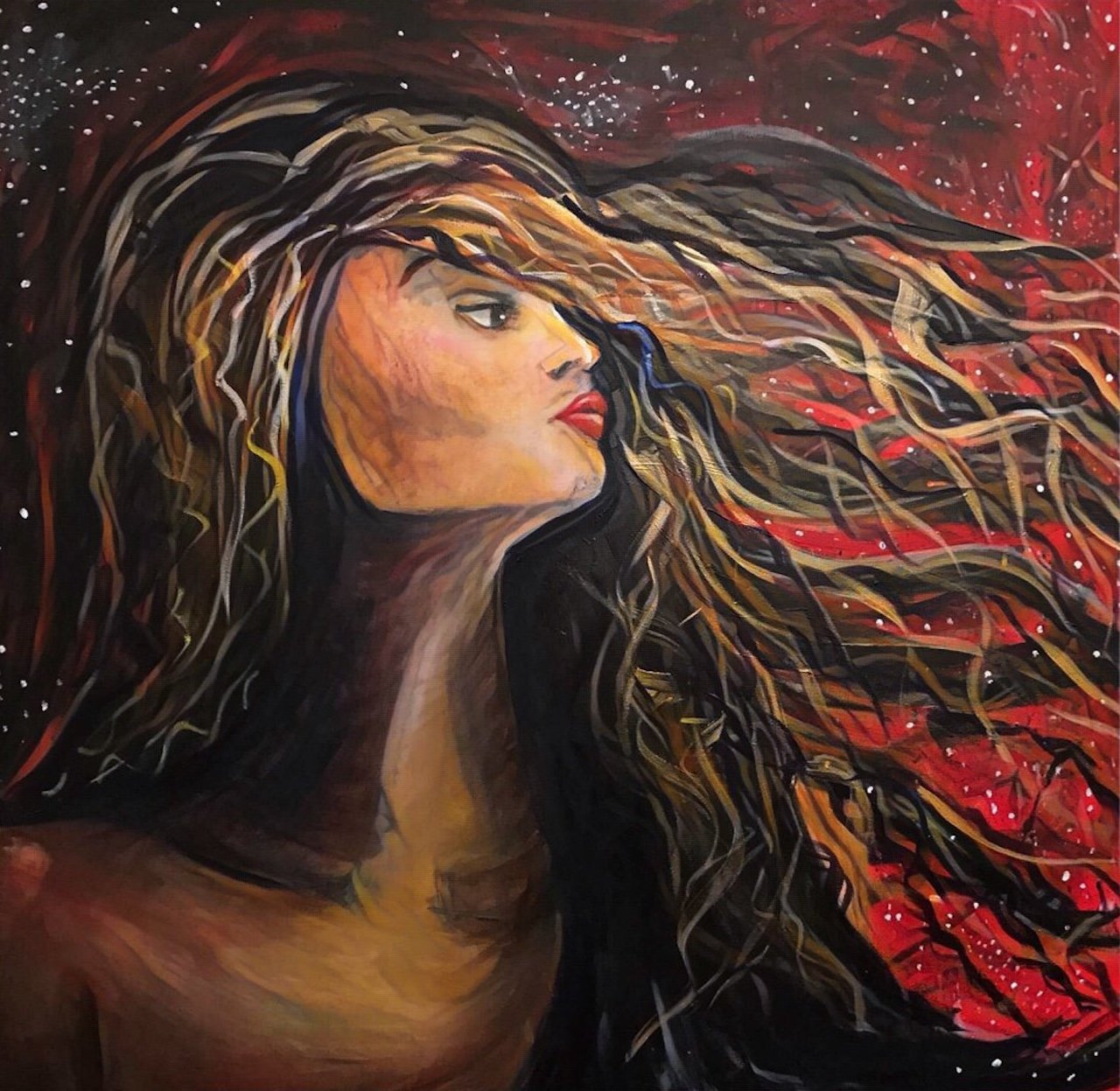“Men don’t like sick women,” my grandma would declare, matter of factly. Her words barely audible through her strong Ukrainian accent. Such a statement was oddly slipped alongside, “Look both ways before you cross the street.”
My Grandma’s advice was largely forged from her fears and anxieties. It was an attempt to insulate me from her own traumatic life – one riddled with stories of poverty, illness, starvation and death. Her advice was also born from a sea of unconditional love and the primal instinct to protect – a maternal drive that was intrinsic to who she was.
The older I got, the more I questioned what she meant by this continued proclamation. Illness was a stranger to me, a visitor having not yet knocked at my door. She explained that throughout her life, many friends and family experienced illness. Women assumed roles of care taking when they were called upon, whereas most men could not. Abandonment of sick women was something she’d witnessed far too many times. Enough times, so that “men don’t like sick women” became a declaration of truth – her truth. A truth I can’t entirely dismiss. There’s clinical research findings which significantly support this. They show female gender to be a strong predictor of partner abandonment, when they have a serious medical illness.
My grandmother’s warning trickled down through generations of our family – though her two daughters, then her four granddaughters. It was as if, being told these words time and time again, she could provide immunity against the trespasses of illness. As if illness could be willfully warded off by saying them. I was raised with this idea embedded into the fabric of my being.
These words are troubling, offensive and incredibly ableist. It ties a woman’s inherent value to her health. It thus becomes another facet for which a woman must strive to be more “likable” to the perceptions of men and society. She then becomes “the undesirable” through no fault of her own. Adding yet another layer of shame – “illness shame” – to women’s bodies. Bodies already bombarded with shame for their different sizes, appearances, natural functions and sexual behaviors. I don’t think this is what my grandma had intended by her words, but her words nevertheless carry this connotation. I also cannot ignore the historical context of them. My grandma was born in 1920; it was not safe for a woman to be sick in her generation – or anyone for that matter. Confounding illness with war and famine could mean life or death.
Her words specially highlighted gender roles within relationships, and the lack of accommodation when women fall ill. Her words have much deeper implications though. Society as a whole historically has not been accommodating to woman who fall ill. Many fall ill. There are sex differences in prevalence for nearly all autoimmune diseases. Women are the vast majority affected. When an illness is invisible, and of unknown origin, the treatment towards women historically has been abusive.
Look no further than the history of multiple sclerosis. Right up to the day the CT scan was developed, and the autoimmune destruction of myelin sheath discovered, many woman had been institutionalized for “hysteria.” Not much has changed in that regard, especially when you look at one of the most marginalized diseases experienced by women today: ME/CFS (myalgic encephalomyelitis). In Jennifer Brea’s documentary, “Unrest” (currently available on Netflix), she herself is diagnosed with “conversion disorder” by a neurologist. There are still cases of women being institutionalized in psychiatric hospitals, despite every indication they have a physical illness.
Gendered differences in medical care are experienced by women every day, but to a much lesser degree. This way is more insidious, pervasive and can be equally as dangerous. Studies show when a woman seeks medical treatment, she is less likely to have her pain taken seriously, and less likely to have her pain adequately treated. If a woman’s pain is not taken as seriously, life-threatening conditions can be overlooked. I have heard far too many stories from women who were told “everything is fine.” Stories of normalization, minimization and dismissive attitudes are commonplace. Women only find out, months or years later, everything was indeed not fine with their bodies. For some, it is too late.
My sister comprises one of these stories, but fortunately for her it only landed her in the ER. She required emergency surgery after having an ovary contort on itself. This was the result of a cyst that had proliferated unchecked to the size of a grapefruit. After having reported months of discomfort prior, she had not even been followed up by a basic ultrasound. Experiences like this couldn’t be better exemplified than the following clip taken from a episode of the Golden Girls:
The intersection of being a woman and experiencing illness has never been an easy one. In many cases, it has not been safe. I believe that is the heart of what my grandmother was trying to say.
When I did become sick, I felt my body was rebelling from what it was supposed to do, and supposed to be. So did my life. My grandma’s words resonated through me, amidst the storm of change illness brought. But my experience has not lived up to her fears. Men don’t like sick women – they love them. The many loving partners I’ve had during my illness have all been empathic and compassionate human beings. Like any trial in a relationship, chronic illness requires communication, adaptation and growth on both sides to persevere. Although there was not much that could be done, my doctors were all knowledgable of ME/CFS and listened. I know both these experiences are not common, and I feel incredibly fortunate to have had them. This has unfortunately not been the case with my experiences with society and others. There have been many instances where I have felt unsafe.
I dream of a world that feels safe for women who live with chronic illness. A lot needs to change for that to happen.

Change starts with listening. By validating and trusting our experiences of our own bodies. It begins with doctors being able to say, “I don’t know,” instead of “conversion disorder.” At least in the words “I don’t know” lies the possibility for scientific exploration and learning – something that does not end after one receives a diploma. In this way, healthcare becomes a reciprocal partnership, where doctor and patient are a team. Change also takes dismantling the long internalized shame held within our bodies. The very shame that often holds us back from standing and speaking up for them. Remember, illness is but a reminder of our humanity. It forces us to face the undeniable truth of bodies. They will fall ill, and the death of them is the only guarantee we have in our lifetime. One cannot be shamed for the entailments of living in a body, because no one is exempt from its rules. Not women, not anyone.
We want to hear your story. Become a Mighty contributor here.

